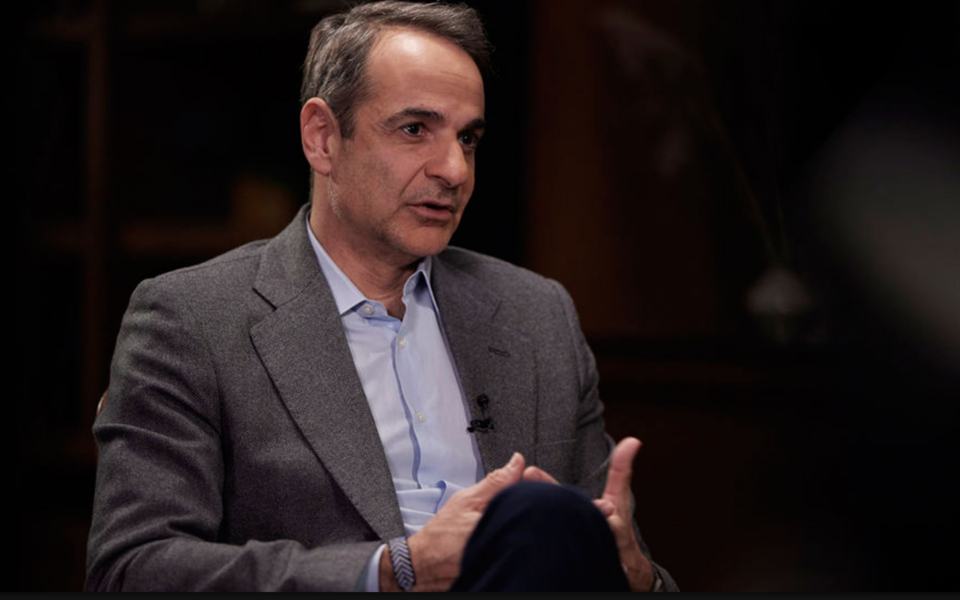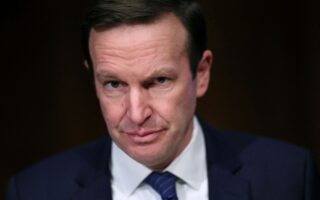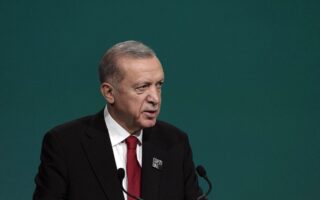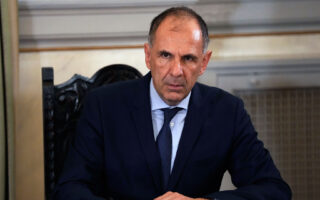Mitsotakis, on Canadian TV, touts ‘rather impressive’ economic comeback

Prime minister Kyriakos Mitsotakis told a Canadian TV host Sunday that Greece is open for business.
Mitsotakis, the first Greek prime minister to visit Canada in more than 40 years, sat down with CTV’s Question Period host Vassy Kapelos in Montreal for an exclusive interview airing Sunday, during his visit to Canada over the weekend.
Economists are predicting stable economic growth and cooling inflation in the coming years for Greece, after more than a decade of deep economic crisis.
“Greece has been making, I think, a rather impressive comeback economically, we’ve left the crisis behind us,” he said. “And I feel this is a good time to make the case also to the Canadian business community that they should take a good look at Greece and consider deploying capital there.”
Mitsotakis in his interview also discussed defense spending — and the need for Canada to reach the NATO target of spending two per cent of GDP on defense — as well as the ongoing war in Ukraine.
“I do understand there’s always a temptation not to spend money on defense, and to spend it on other priorities, but in our case we never had that luxury,” he said. “We always spent more than two per cent on defense.”
“But to the extent that this is a collective goal of the NATO alliance, I think it is important for all countries to reach that goal,” he added.
Mitsotakis also spoke about the trade agreement between Canada and the European Union, known as CETA, and the delays in ratifying it, a topic he said he was sure to discuss with Canadian Prime Minister Justin Trudeau this weekend.
Interest in Canadian LNG
Greece would “of course” be interested in purchasing Canada’s liquefied natural gas (LNG) if the resource could be made available to the Mediterranean country, Mitsotakis said in the interview.
Canada has eight LNG projects “in various stages of development,” according to Natural Resources Canada. The first export facility is slated to begin operations next year with shipments destined for some Asian countries.
But whether Canada can and should plan to also export to European countries in the future has been an ongoing political debate for years.
The issue has also taken a new sense of urgency since Russia’s invasion of Ukraine, and the efforts of many Western nations to phase out the purchase of Russian oil.
“We are a big entry point for LNG, not just for the Greek market, but also for the Balkans, for Eastern Europe,” Mitsotakis said. “Theoretically, we could even supply Ukraine.”
“So in principle, yes, we are very interested in obtaining LNG at competitive prices,” he continued. “As fast as we go in terms of our renewable penetration, we will still need a reliable source of electricity, and for us, for Greece, we don’t have nuclear, we’re practically, or completely, moving away from coal, so that leaves natural gas for the foreseeable future as a significant source of energy, for the production of electricity.”
When asked whether Canada could be an ideal partner in that, Mitsotakis said “absolutely.”
“Canada is a country with which we share so many values,” he said, pointing to his country’s alignment with Canada on several geopolitical issues, including Ukraine and Gaza.
In August 2022, Trudeau said he wasn’t sold on the idea of LNG exports being part of Canada’s long-term plan when it comes to becoming a reliable supplier of clean energy to Europe.
Speaking alongside German Chancellor Olaf Scholz at a press conference at the time, Trudeau seemed to question the “business case” for pursuing LNG developments.
“We are in a situation in the short-term, where we will do what we can to contribute to the global supply of energy by increasing our capacities … and explore ways to see if it makes sense to export LNG, and if there’s a business case for it, to export LNG directly to Europe,” Trudeau said.
“But in the medium-term and long-term, Canada can and will position itself to be a key supplier of energy to the world in a net-zero economy. And that means investments in hydrogen, it means more investments in critical minerals … it means investments in a range of solutions.”
(CTV.com)





